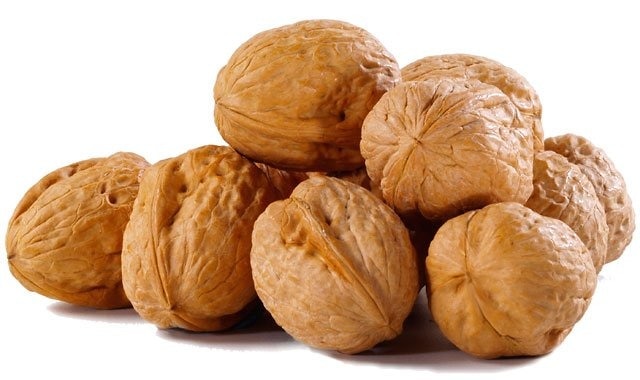Table of Contents
Health Tips: Over 200 Plus Health tips for a Better,Standard and Healthy Living.
Enjoying good health is beneficial to everyone.There are thousands of tips for staying healthy while working and doing what you know how to do best. Maintaining good health with standard health tips is extremely beneficial to one’s physical, mental, or emotional state, and it is also conducive to or associated with good health or reduced risk of diseases and infections.
This article will discuss in details over 20 plus+ health tips in 2019 and beyond for a healthy and better living. Lets begin;
- EGG: In addition to more than 12 vitamins and minerals, egg contain lots of quality protein, which is essential for pregnancy especially at the early stage. The baby cells are growing at an exponential rate, and every cell is made of protein, besides as a pregnant woman, you have your own protein .

Eggs or also rich in choline which promotes your baby overall growth and brain health, some eggs even contain omega-3 fatty acid which help in both brain & vision development. Healthy cholesterol, one can consume one to two eggs a day as part of the balanced diet low in saturated fat. But for a woman where cholesterol is a concern problem, one can substitute egg yolk for whole egg.
- FISH: not only is salmon fish rich in high-quality protein, but it’s an exceptionally good source of omega-3 fat, and may help boost occur mood. And unlike shark, mackerel files fish, salmon has low mounts of methyl mercury, a compound that can be harmful to your baby’s developing nervous system.
- BEANS: Beans contain the most fiber and protein of all the vegetables. In as much as protein is very good. During pregnancy, fiber is another vital food you will need once you are pregnant. When you’re pregnant, your gastro intestinal tracts slows down putting you at risk for constipation and hemorrhoids, (pile). Fiber can help prevent and relieve these problem.
- SWEET POTATOES: Sweet potatoes get then orange colour from carotenoids, plant pigments that are converted to Vitamin A in our body. Sweet potatoes are also a great source of Vitamin C, folate and fiber.
- POPCORN & OTHER WHOLE GRAIN: Popcorn is a whole grain ‘yes’. And whole grains are important in pregnancy because they’re high in fiber and nutrient, including Vitamin F, Selenium, and plant nutrients (plant compounds that protect cells).
- WALNUT: Walnut are one of the richest source of plant based omega-3 fat, Walnuts are also a good sources of protein and fiber.
- YOGURT: Yogurt is a good source of calcium which is vital in a pregnancy diet. If you don’t take in enough calcium, the limited amount you have will go to your baby which will them now deplete the calcium, the limited amount you have will go to your baby which will them make sure you provide everything your baby need without sacrificing your own health & nutrition. Calcium will help keep your own bone intact while laying down a healthy bones for your baby.
- GREEN, LEAFY VEGETABLES: Spinach and other green leafy vegetables are loaded with vitamins and nutrients including acid. They’re also been found to promote eye health.
- LEAN MEAT: Meat is an excellent source of high quality protein,according to Dietitian Karin rosenfield of north dallas Nutrition “look for lean meat with fat trimmed off” Do you know that Beef and Pork Meat contains choline in addition to protein that is what make them stand out. Don’t eat dead meats or hot dogs though, they’re heated until steaming hot, there’s a small risk of passing bacteria and parasites such as listeria, toxoplasma salmonella from the meat to your baby. According to Mayo clinic obstetrician Mary Massachusetts
- COLORFUL FRUITS & VEGETABLES: Eating plenty of green, red, orange, yellow purple and white fruits & vegetable ensures that you and your baby get a variety of nutrients. During the later stages of pregnancy, the baby get a variety of nutrients. During the later stages of pregnancy, the baby “tastes” the food you eat through the amniotic fluid so if you expose your baby to a variety of fruits & vegetable in the woman, you will increase the chance that your baby will recognize and accept those flavor later on.
Sperm Count is one of the most important characteristics in male fertility. Research shows “that in more than half of infertility issues in couples, low sperm count is the cause. According to the World Health Organization, sperm count of more than 15 million sperms per milliliters is considered normal. In semen analysis which is a test for sperm quality to find the underlying cause of male infertility, the following parameters are measured: sperm count, sperm motility, sperm morphology, volume, fructose level and PH. Several environmental, lifestyle and medical causes can lower the sperm count significantly.
Here is a list of the most common causes of low sperm count:
# Drugs such as cocaine and marijuana
# Drinking alcohol
# Extended uses of computers and laptops
# Long-term sitting. Such as driving and bicycling for a long time
# Smoking
# Stress
# Obesity
Exercise and a healthy diet can help you to increase your sperm count. Here we gathered a list of 10 foods that can help you to boost your sperm count:
- BANANAS:
Bananas are effective at increasing sperm count, since they contain a rare enzyme called Bromelain. Bromelain is also found in pineapples, and mostly in their stem… Bromelain is a natural anti-inflammatory enzyme which also boosts greater production of the male sex hormone, testosterone. Bananas are also a rich source of vitamins B1, A and C. These essential vitamins help the body enhance its sperm producing ability and increases stamina significantly.
- DARK CHOCOLATE:

Dark chocolate is not just used in seduction, but it also has enormous health benefits. According to a research published in the Journal of the American Dietary Association, dark chocolate can increase the feeling of attraction between two people by releasing the same endorphins that are secreted during sex. Dark chocolate also contains L-arginine, which is also present in red meat, nuts spinach and whole grains, soy, seafood and eggs. This amino acid is needed for sperm volume.
According to the University of Michigan Health System several months of L-arginine supplementation increases sperm count, quality, and fertility L-arginine is also known to improve the dilation of blood vessels. Which increases blood flow to the genitals, which can help the joystick to enlarge that’s the reason why men who consume dark chocolate everyday have reported stronger and more intense orgasms.
- GARLIC:
Garlic has the ability to increase blood flow in the body.Garlic contains a chemical called allicin. Allicin is responsible for many of garlic’s amazing health benefits including its antimicrobial and anti-hypertension properties.
This compound prevents plaques from building up in arteries and enhances blood flow to the genital area which increases the production of sperm. Garlic also contains nitric oxide synthase, which plays an important role in a healthy erection. Garlic provides the body with selenium and vitamin D which are responsible for the mechanism of healthy sperm production.
- BEEF
Beef is a rich source of zinc which possesses protective properties that prevent free radicals from becoming part of sperm. Zinc stops testosterone from converting into estrogen which is responsible for low Iibido. According to Mayoclinic, daily consumption of 66 milligrams of daily zinc is helpful for sexual dysfunction in men. If you’ve vegetarian, don’t worry! There are plenty of vegetarian and vegan foods that are abundant sources of zinc. Please make sure to check out Top 10 Signs of Zinc Deficiency.
- WALNUT Yoruba people do call it “ASALA”.

As mentioned earlier, walnuts contain arginine that helps in the increased production of sperm and also boosts semen volume. Walnut’s also contain Omega-3 fatty acids which help increase blood flow to the joystick. They also possess twice the antioxidant power of other nuts. An amazing fact about walnuts is that having 7 walnuts a day lowers cholesterol and risk of heart attack.
- SPINACH: Spinach has many health benefits and is easily available. Green leafy vegetables like spinach contain high amounts of folic acid. Vegetables enriched in folic acid help contribute to sperm count. They also make sperms healthier and increase their motility.
- FRUIT SALAD: Fruits like oranges, strawberries, cherries, and other antioxidant-rich fruits are effective in boosting sperm count and preventing damage to sperm. Eating a fruit salad help helps you absorb all the nutrients of fruits at one time.
By making eating fruits a habit, it can help counteract free radical damage. The semen of men who take up to 100mgs of vitamin C daily has less clumping than that of their deficient counterparts. This increases motility and the chances of fertilization.
- EGG: Eggs help increase sperm count and improve fertility. Eggs are rich in vitamin E, a deficiency of which is responsible for testicular tissue degeneration. The antioxidant quality of vitamin E helps counteract the negative effects of free radicals on sperm and egg and therefore this vitamin is considered one of the most important nutrients for fertility.
WATER:The simplest way to improve your sperm count is to drink ample water each day. It’s necessary to keep your body hydrated in order to boost the functioning of cell including sperm. Drinking 8 to 10 glasses of water a day can help your sperm to go along way.
- TOMATOES: Tomatoes can boost sperm count by 70% if….
The key nutrient that gives tomatoes their bright red colour could boost fertility in men, according to a study.
Health tips–10 Tips to Prevent Infections

There are some proven ways to keep yourself healthy. You know the basics: stay clear of runny noses and hacking coughs- you may be wondering about some other practical ways of staying infection-free. Your skin acts as natural barrier against harmful microbes that cause infections, but smart “bugs” have found alternative routes to get into your body and cause infection. By making a few simple behavioral changes (which ultimately reduce their access into your body), you can easily prevent the spread of many infectious diseases.
- Wash your hands frequently. Did you know that microbes can live on insert surfaces anywhere from a few minutes to several months? It depends on the microbe and the environment. Some can live for short periods only; others can live for longer periods. These disease causing microbes living on your computer keyboard, your light switch, or even on the pedestrian crossing button next to the crosswalk!
Surprisingly, most people don’t know the best way to effectively wash their hands. The CDC recommends washing thoroughly and vigorously with soap and water for at least 20 seconds, followed by hand-drying with paper towel.
- Don’t share personal items. Toothbrushes, towels, razors, handkerchiefs, and nail clippers can all be sources of infectious agents (bacteria, viruses, and fungi). In kindergarten, you were taught to share your toys, but keep your hands to yourself. Now try to remember to keep personal items to yourself as well!
- Cover your mouth when you cough or sneeze. In a similar vein, good personal hygiene includes not only personal cleanliness, but also the age- old practice of covering your mouth when you cough sneeze. Why is this important if you aren’t sick? For most infections, the disease-causing microbe has already started growing and dividing long before any symptoms begin to show. Coughing or sneezing can spread these germs through microscopic droplets in the air.
- Get vaccinated. Your immune system is designed have a “memory” of previous infections. When your body encounters a microbe that has previously caused an infection, it enhances its production of white blood cells and antibodies to prevent infection a second time
However, by getting vaccinated, you “trick” your body into thinking that it has been infected by a particular microbe, hence enhancing its own defenses against subsequent infection. It will protect you and around you.
- Use safe cooking practices. Food-borne illnesses frequently arise from a poor food preparation and dining habits. Microbes thrive on virtually all food items, and more so on foods left at room temperature. Refrigeration slows or stops the growth of most microbes. Promptly refrigerate foods within 2 hours o preparation. Use separate cutting boards for raw meat and vegetables, keep clean counter tops, and wash all fruits and vegetables well prior to eating.
- Practice safe sex. Sexually-transmitted diseases are probably the most easily preventable infectious disease By being smart about safe sex (using condoms, transmission of infectious bacteria or viruses from one person to another can be prevented.
- Don’t pick your nose (or your mouth or eyes either). Not only is it a social taboo, but it also leads to the spread of a number of infections. Look around, and you’ll notice how many people have their hands next to their faces. Many microbes prefer the warm, moist environment inside your nose, as well as other mucous-covered surfaces such as your eyes and mouth. Infection us can be easily prevented by avoiding touching of these areas.
8. Exercise caution with animals. Infections that can spread from animals to people are called “zoonotic diseases” and are more common than most people realize, if you have pets, make sure they get regular check-ups and that their vaccinations are up-to-date. Clean litter boxes frequently (unless you’re pregnant stay away!), and keep small children away from animal feaces. Different types of wild animals carry diseases such as rabies or bird flu or fleas and ticks that spread plague and Lyme disease.
Make the area around your home unfriendly to rodents and other mammals by eliminating areas where the could hide or build nests, using rodent proof trash cans that contain food waste, and scaling up holes that offer easy and attractive access to animals. And teach small children your household to be cautious when encountering wild animals.
12 Health benefits of Garden egg/leaf you don’t know

GARDEN egg (Solanum melongena) is a fruit but an unusual kind of fruit, which at times is used for the preparation of stew. It is called Igba among the Yoruba of Southwest Nigeria. Garden egg leaf, locally known as akwukwo anara and efo Igbo in the Eastern and South -Western part of Nigeria is used in the preparation of vegetable stews and yam dishes.
Garden egg are not only nutritional but significantly of health benefits to human body.
Here are the 12 Health benefits of Garden egg/Leaf you need to know.
(1) Garden egg positively helps with heart problems and it helps to make the weight reduction diet more successful.
(2) It helps to Lower eye pressure in persons with glaucoma without side effect even with high consumption.
(3) It is high in potassium, a necessary salt that helps in maintaining the function of the heart and regulate blood pressure.
(4) It helps in the treatment of stomach ulcers.
(5) Eating garden egg is good at reducing blood cholesterol.
(6) Pregnant women need more of vitamins and minerals which are available in garden egg vegetable (Garden egg leaves).
(7) Garden egg leaves can serve as a natural blood tonic in anemic patient.
(8) The leaf provides women with micro nutrients which help in improving blood level.
(9) Garden egg is one of the anti-cancer fruit which has been helping for over decades.
(10) Garden egg provides the body with both fat soluble vitamins and water soluble vitamins, which are rich in Thiamin (Vitamin B6) required for normal growth and proper functioning of the heart and nervous system.
(11) Garden egg helps prevent blood clots.
SUMMARY
Everyone should try to understand that good health is wealth.It’s very easy to get confused when it comes to health and nutrition tips especially trustworthy health tips .Even qualified and well recognized experts often seem to hold opposing opinions in tis regard.
However, despite all the disagreements and antagonism, a number of wellness and healthy tips are ideally/precisely supported by research.
To maintain good health, try not to drink sugar calories. Sugary drinks are among the most fattening items you can put into your body. Eat nuts. Avoid processed junk food (eat real food instead) Don’t fear coffee. Eat fatty fish. Get enough sleep. Just like Garlic, its very healthy for its antimicrobial and antibacterial properties. Research studies have shown that people taking garlic supplements experienced fewer and less severe colds. Like wise Ginger, Unknown to most people, ginger contains mineral nutrients like calcium, vitamins, iron, calcium, vitamins, iron, phosphorus etc.and its very good for the body. Always eat ginger at least one peace in a day.
Recommended Health Articles to Read:





